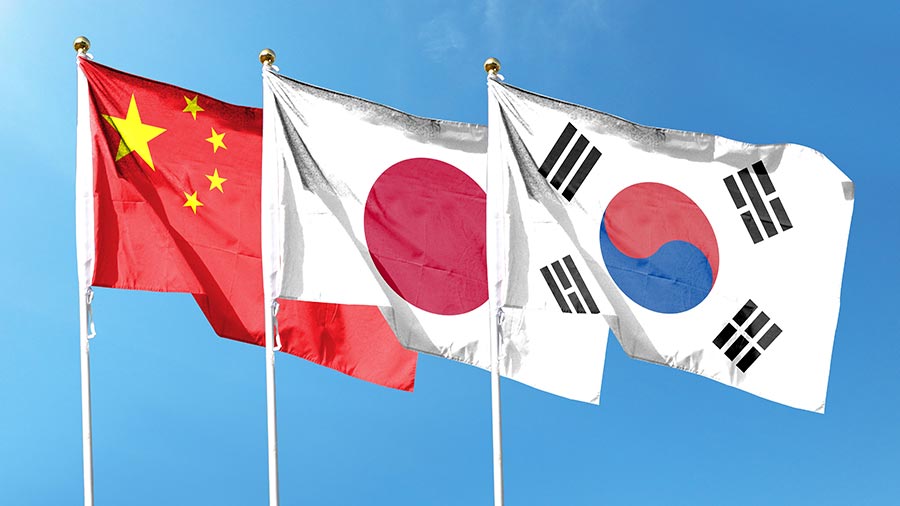Chinese Premier Li Qiang praised what he called a restart in relations with Japan and South Korea as he met their leaders for the first three-way talks in four years on Monday, striving to revive trade and security dialogues hampered by global tensions.
The Chinese premier met with South Korean President Yoon Suk Yeol and Japanese Prime Minister Fumio Kishida in Seoul with efforts to revitalise three-party free trade agreement negotiations, stalled since 2019, high on the agenda.
As the summit opened, Li said the talks were “both a restart and a new beginning” and called for the comprehensive resumption of cooperation between East Asia’s economic powerhouses.
But for this to happen politics should be separated from economic and trade issues, he added, calling for an end to protectionism and the decoupling of supply chains.
“For China, South Korea, and Japan, our close ties will not change, the spirit of cooperation achieved through crisis response will not change and our mission to safeguard regional peace and stability will not change,” Li said.
Regardless of any agreements signed during the talks, the meeting itself is being seen as a mark of progress in relations between three countries whose relations are marked as much by suspicion and rancour as constructive engagement.
China and U.S.-allied South Korea and Japan are trying to manage mutual distrust amid the rivalry between Beijing and Washington, tensions over democratically ruled Taiwan, which China claims as its own, and North Korea’s nuclear programme.
Yoon and Kishida have charted a closer course with each other and to Washington, embarking on unprecedented three-way cooperation with the United States on military and other measures.
U.S. President Joe Biden has raised barriers to Chinese imports, hiking tariffs on an array of Chinese imports including electric vehicle (EV) batteries and computer chips. Donald Trump, his rival in the November presidential election, has floated tariffs of 60% or higher on all Chinese goods.
On North Korea, Yoon and Kishida called on Pyongyang not to carry out a planned rocket launch carrying a space satellite, which they say uses ballistic missile technology banned by United Nations Security Council resolutions.
Li called for all parties to practice restraint and prevent further complication of the situation on the Korean peninsula. China is North Korea’s only military ally, its largest trade partner, and along with Russia, has called for U.N. sanctions on North Korea to be eased.
TRADE RELATIONS
The trade relationship between China, South Korea and Japan has evolved over the past decade to become increasingly competitive.
Those ties have been further tested by U.S. calls for its allies to shift their supply chains for key products, such as semiconductors, away from China.
Yoon said the leaders agreed to build a transparent and predictable trade and supply chain environment, but did not elaborate.
The leaders also attended a forum with top business executives from the three countries who noted that cooperation had not reached its potential due to the global challenges, but agreed that industry would work together to support trade and stabilise supply chains.
South Korea, Japan and China held 16 rounds of official negotiations over a three-way FTA after they first kicked off in 2012.
At their last negotiation in November 2019, the three countries agreed on liberalisation at a level higher than the Regional Comprehensive Economic partnership (RCEP), of which they are all members, encompassing areas from trade of goods and services to investment, customs, competition and e-commerce.
Monday’s summit comes a day after the leaders met separately for bilateral talks with each other.
In those meetings, Li and Yoon agreed to a diplomatic and security dialogue and resume free trade talks, while Kishida and the Chinese premier discussed Taiwan and agreed to hold a new round of bilateral high-level economic dialogue.
Yoon also asked China to play a constructive role with its partners in North Korea, which is expanding its nuclear weapons and missile arsenal in defiance of United Nations Security Council resolutions.
(Reuters)














